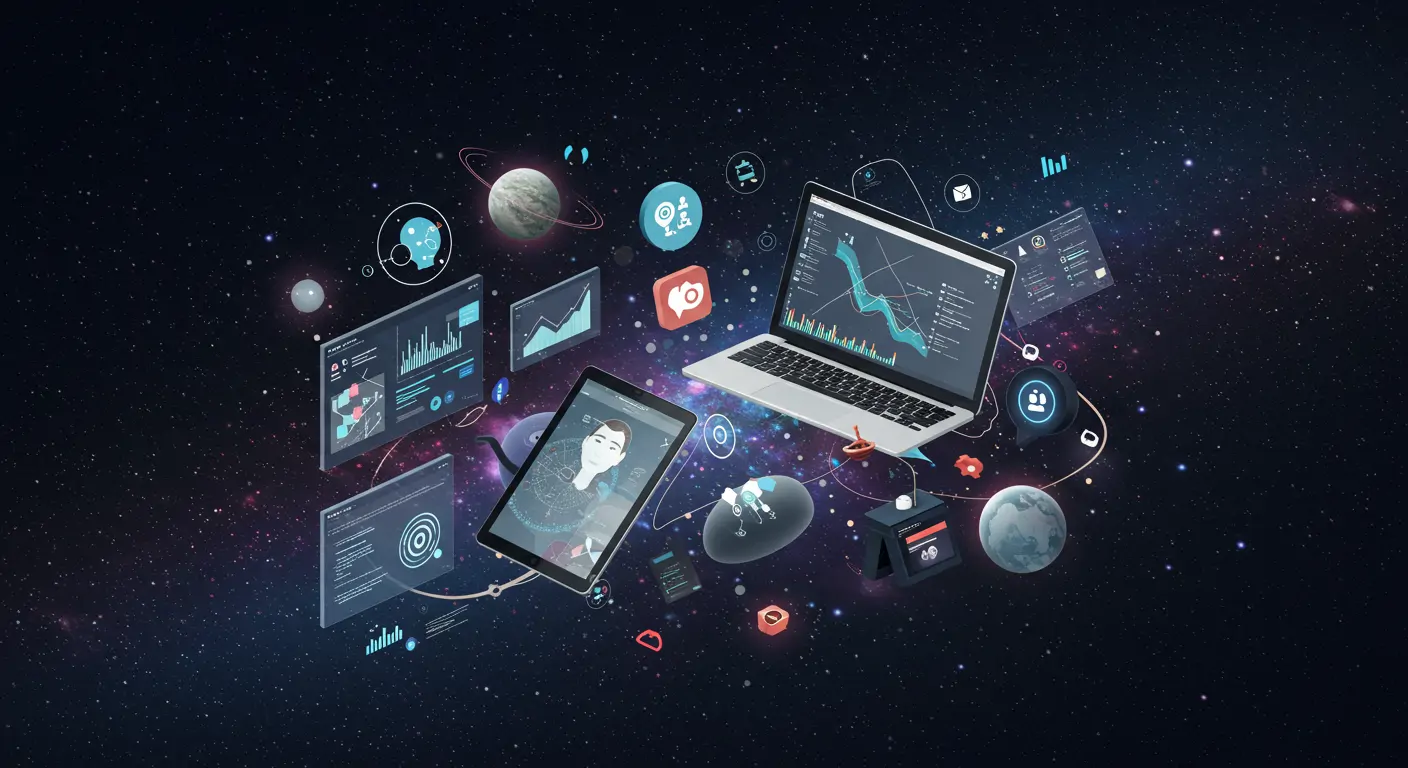Introduction: Why This Matters Now
In 2025, AI-powered user-centric mobile apps are reshaping digital interactions, with 72% of consumers reportedly spending more time on apps personalized through AI enhancements (Accenture, 2025). These apps are vital for businesses aiming to increase engagement and retention, as evidenced by the 35% increase in app usage when AI personalization is involved. This trend is pivotal for developers, businesses, and investors seeking competitive advantages in a saturated market. Read time: 7 minutes.
The Current State: What's Happening Right Now
As of early 2025, major players like Google, Apple, and emerging startups are heavily investing in AI-driven app solutions. Google's AI-powered Assistant saw a 44% increase in active users in the first quarter of 2025 alone. Meanwhile, Apple's integration of AI into iOS has made its Health app indispensable, with user engagement up by 28% since its last update in mid-2024. The global market for AI in mobile apps reached $89 billion in 2024, with expectations to surpass $110 billion in 2025 (Statista).
Key Drivers: What's Fueling This Trend
Driver 1: Technological Advancements
The proliferation of 5G networks and edge computing has reduced latency, making AI integrations seamless and efficient. This has empowered apps to deliver real-time personalization, crucial for enhancing user experience.
Driver 2: Consumer Expectations
Today's users demand personalized experiences. A McKinsey report from late 2024 highlights that 80% of consumers are more likely to use a service that offers tailored interactions.
Real-World Impact & Case Studies
Case Study 1: Spotify
- Implemented AI to enhance playlist recommendations
- Achieved a 27% increase in daily active users by Q2 2024
- Key Lesson: Personalization drives engagement and loyalty.
Case Study 2: Calm App
- Used AI to adapt meditation sessions to user stress levels
- Reduced churn rate by 15% in 2025
- Key Lesson: Adaptive experiences retain users.
Industry Implications
For Developers
- Learn AI/ML toolkits like TensorFlow
- Growing demand for AI-specialized roles
For Businesses
- Need for strategic AI integration to stay competitive
- Access to richer user insights
For Investors
- Opportunities in AI-driven startups
- Risks associated with rapid tech changes
Challenges & Criticisms
Despite the advantages, AI in mobile apps faces criticism regarding privacy concerns. Users are increasingly wary of how their data is collected and utilized. Additionally, the complexity of AI-driven development can lead to higher costs and longer implementation times, posing a risk to less resourced companies.
Future Outlook: What's Next
In the next 6-12 months, expect AI-powered apps to continue evolving, with even more seamless integrations across devices. By 2027, it's predicted that over 80% of mobile apps will have some form of AI-based personalization, driven by user demand for more intuitive experiences. Companies must prepare by investing in AI research and talent acquisition to remain relevant.
Frequently Asked Questions
- How are AI-powered apps different from traditional apps?
- What are the main privacy concerns with AI apps?
- How quickly can businesses expect ROI from AI integrations?
- Will AI solutions increase app development costs?
Conclusion: Key Takeaways
- AI-powered apps are crucial for driving engagement and retention in 2025.
- Technological and consumer expectation shifts are primary drivers.
- Real-world examples like Spotify show significant user growth with AI.
- Challenges include privacy concerns and implementation costs.
For further learning, explore industry-specific AI integration guides.




